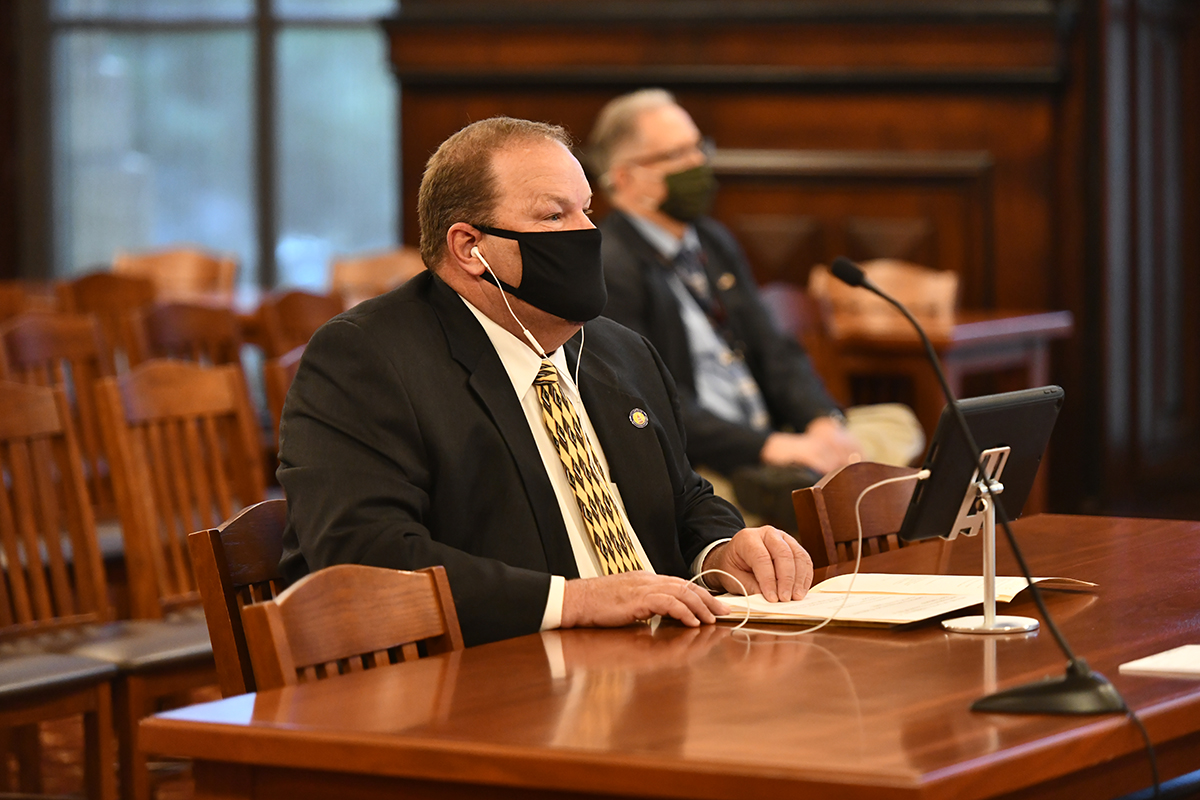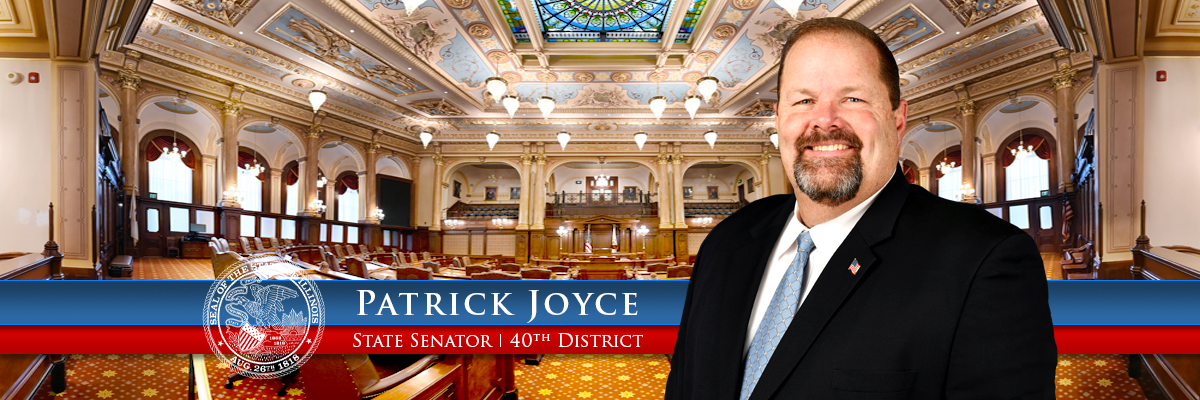Joyce resolution designates Oct. 28 as First Responders Day in Illinois
- Details
- Category: Press Releases

SPRINGFIELD – State Senator Patrick Joyce’s (D-Essex) proposal to declare Oct. 28, 2021 as First Responders Day in Illinois cleared the Senate Wednesday.
“Our first responders put their lives on the line each day to ensure our safety, protection and well-being,” Joyce said. “I’m thrilled that this measure has been adopted by my colleagues in the Senate and will allow us to properly celebrate these folks next week.”
This idea was brought to Joyce by a 911 dispatcher in Kankakee County and led to Senate Resolution 534. This designated day will recognize and remember the first responders lost and extends gratitude to all first responders for continuously putting their lives on the line for the citizens of Illinois.
In addition, it specifically thanks 911 dispatchers, as well as firefighters, police officers, emergency medical technicians and paramedics for their commitment to Illinois public safety.
“There’s no question our first responders have difficult jobs,” Joyce said. “Designating this day to our first responders will ensure we all pause and reflect on all they do for us and our communities.”
Senate Resolution 534 was adopted by the Senate with bipartisan support.
Joyce stresses grain bin safety during the busy harvest season
- Details
- Category: Press Releases
 KANKAKEE – To prevent fatalities on the farm during the busy harvest season, Senate Agriculture Committee Chair Patrick Joyce (D-Essex) is joining officials in reminding farmers and farm workers to be cautious when working in and around grain bins.
KANKAKEE – To prevent fatalities on the farm during the busy harvest season, Senate Agriculture Committee Chair Patrick Joyce (D-Essex) is joining officials in reminding farmers and farm workers to be cautious when working in and around grain bins.
“When a farmer falls into a grain bin and gets trapped, it can become a life-threatening emergency,” Joyce said. “Farmers are not fast enough to get out of flowing grain so it’s important to set aside time to go over safety measures and prepare farmers for a potential grain bin emergency.”
While essential to Illinois’ harvests, grain handling equipment and storage containers can quickly become deadly. In fact, Illinois reported the most incidents involving agricultural confined spaces, including grain bins, in 2020.
According to the Occupational Safety and Health Administration, a worker standing on moving grain will be trapped within just five seconds and completely covered in grain in less than half a minute.
OSHA details the three most common scenarios leading to grain entrapment:
- A worker stands on moving or flowing grain, typically caused by an auger running or grain being moved out of the bin by gravity.
- A worker stands on or below a grain bridging situation. Bridging happens when damp grain clumps together, creating an empty space beneath the grain as it is unloaded. A worker above or below this bridge of grain is at risk should the bridge collapse.
- A worker stands next to an accumulated pile of grain on the side of the bin and attempts to dislodge it. It can collapse onto the worker.
While workers should avoid entering grain bins if possible, safety measures can greatly diminish the risk if they must enter. To learn safety tips and find additional information to stay safe during harvest, click here.
Joyce urges small businesses to apply for Back to Business grants
- Details
- Category: News

PARK FOREST – State Senator Patrick Joyce (D-Essex) is urging local businesses to apply for the second wave of Back to Business grants before the Oct. 13 deadline.
The B2B program allocates $250 million in American Rescue Plan Act dollars for small businesses experiencing COVID-19 losses, and grants will continue to be awarded on a rolling basis.
“I have seen firsthand how the pandemic has impacted our small business community, which is why we must give our local businesses the resources they need to be active and thrive,” Joyce said. “I’m excited and encouraged by the $280,000 our district has received in the first wave of B2B grants, but it’s extremely important that more businesses apply before the deadline.”
Eligible businesses are encouraged to apply by visiting the DCEO website. To help restore operational losses incurred during the pandemic, the B2B program will provide grants ranging in size from $5,000 to $150,000, commensurate with losses experienced.
Joyce encourages residents to reach out to his office at 708-756-0882 or visit SenatorPatrickJoyce.com with questions and concerns.
Joyce announces local libraries to receive over $24,000 in mentoring grants
- Details
- Category: Press Releases
 KANKAKEE – Two area libraries will receive grants to administer mentorship programs for at-risk youth, State Senator Patrick Joyce (D-Essex) announced Tuesday.
KANKAKEE – Two area libraries will receive grants to administer mentorship programs for at-risk youth, State Senator Patrick Joyce (D-Essex) announced Tuesday.
“After a difficult year for our students, these grants couldn’t have come at a better time,” Joyce said. “Making sure our at-risk youth have the resources and mentors they need to get back on track is important, and Project Next Generation will help with that.”
The Bradley Public Library District will receive over $7,000 and the Kankakee Public Library will receive $17,000 in Project Next Generation grants. PNG is a mentoring program established by Illinois Secretary of State Jesse White to help middle and high school students develop technological skills, achieve success through project-based learning, and gain life skills such as effective communication, goal-setting and conflict resolution.
The secretary of state awarded over $530,000 in in PNG grants to libraries statewide. Grants are awarded to libraries that serve culturally diverse, low-income and underserved populations.
Funds were provided by the Institute of Museum and Library Services. For more information, visit https://www.ilsos.gov/departments/library/grants/png.html.
More Articles …
Page 52 of 103




